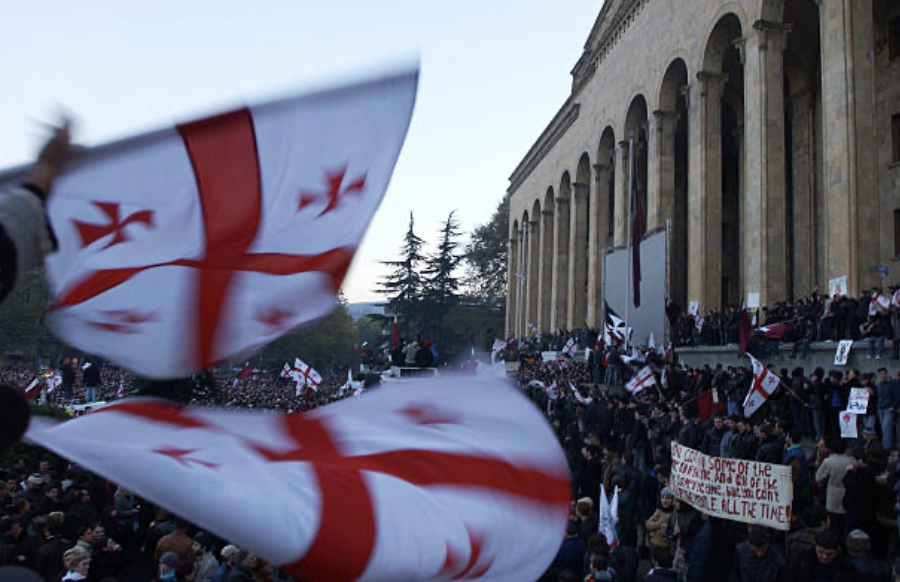Despite its geographical location in Asia, Georgia has long aspired to join the EU and NATO. In June 2022, the EU granted candidate country status to Ukraine and Moldova, but not to Georgia due to its allegedly too close ties with Moscow. However, in December 2023, Georgia was finally granted EU candidate status, marking an important step in its European aspirations.
The Georgian government, led by the Georgian Dream party, adopted a controversial law on “foreign influence” despite strong popular protests and calls for the withdrawal of this law deemed undemocratic.
This law, inspired by Russian legislation, would require NGOs and media receiving more than 20% foreign funding to register as “foreign agents”. The EU, UN and NATO strongly condemned the adoption of this law, deeming it incompatible with Georgia’s European ambition. Thousands of Georgians, especially the younger generations, have been demonstrating for weeks to defend their pro-Western and European roots.
A controversial bill
Several international NGOs, such as Amnesty International and Human Rights Watch, have described it as a threat to fundamental freedoms and democracy in Georgia. They expressed concern over the government’s desire to restrict freedom of expression and freedom of association in the country.
Facing domestic and international pressure, the ruling party was eventually forced to withdraw the controversial bill. However, protests and political tensions persist in Georgia, reflecting deep divisions within society between supporters of the pro-Russian orientation and those who prefer to align with the EU.
Georgia therefore remains a complex political playing field, marked by contradictory external influences and internal power struggles.
Risk of withdrawal from the EU
The adoption of this controversial law casts serious doubts on the continued rapprochement between Georgia and the EU, which had granted Tbilisi candidate status in December 2023.
Some European officials are raising the possibility of sanctions or a suspension of accession negotiations if the government persists. The ruling party’s founder, oligarch Bidzina Ivanishvili, delivered a threatening anti-Western speech, calling into question the credibility of the accession process. The EU is facing a test of credibility in the face of this democratic turn in Georgia, a key country for its Caucasus enlargement policy.
In short, Georgia’s European future appears very compromised by these growing internal and external tensions, unless the Georgian government changes direction towards more democratic openness.
A divided society
The current crisis in Georgia highlights the deep divisions that persist within Georgian society. Indeed, the country is fragmented into three camps: around a third of the population leans towards Russia, another third is under Turkish influence, while the last third aspires to European integration.
Prime Minister Irakli Garibachvili, a member of the ruling party, says he is in favor of rapprochement with the European Union and NATO. However, its actions appear more aligned with those of Moscow. On the other hand, President Zourabichvili is resolutely pro-European. This growing polarization endangers Georgia’s European aspirations as well as its independence from Russia, which has already occupied 20% of its territory since 2008.
It is imperative that the nation addresses and resolves its internal divisions in order to establish a unified front and achieve consensus. By doing so, Georgia can ensure a stable and prosperous economy, creating a promising future for all its citizens. It is essential that the government, political parties, and society as a whole work together to bridge their differences, foster unity, and prioritize the well-being and success of the country as a whole. Only through collaboration and cooperation can Georgia move forward and thrive as a nation.










